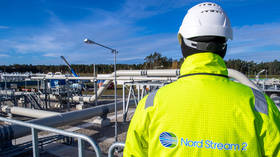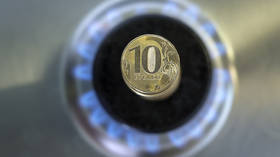Germany explains why it opposes Russia gas embargo

A ban on Russian gas will not stop the conflict in Ukraine but will cause an economic crisis in Germany and the EU, German Chancellor Olaf Scholz said in an interview published on Friday.
Embargoing Russian gas would cost millions of jobs and crash the German economy, making it more difficult for Berlin to fund Ukraine’s war effort and reconstruction, the chancellor argued.
“Firstly, I don't see at all that a gas embargo would end the war,” Scholz told the German weekly Der Spiegel, adding that if Russian President Vladimir Putin “were open to economic arguments, he would never have started this insane war.”
Critics of Germany’s position on Russian gas “act as if we’re all about making money,” Scholz complained. “But the point is that we want to avoid a dramatic economic crisis, the loss of millions of jobs and factories that would never open again. That would have serious consequences for our country, for the whole of Europe, and it would also severely affect the financing of Ukraine’s reconstruction.”
Germany “can’t let that happen,” he added.
Scholz also pointed out such an embargo would have “global consequences.” This echoed comments by US Treasury Secretary Janet Yellen, who said on Thursday that a complete EU ban on Russian oil and gas imports would ultimately cause more harm than good.
“It could actually have very little negative impact on Russia, because although Russia might export less, the price it gets for its exports would go up,” Yellen said after meeting with Ukrainian officials in Washington, according to AFP.
Addressing the Nord Stream 2 gas pipeline, Scholz said he expected the US sanctions would have blocked it from completion, but that did not happen. Berlin blocked the pipeline from becoming operational in February, citing the conflict in Ukraine as a pretext.
Germany should have “diversified” its energy imports years ago, as well as expanded investments in renewable energy sources for the sake of the environment, the chancellor told Der Spiegel. However, he also criticized the publication for opposing the construction of liquefied natural gas (LNG) terminals, to enable imports from the US.













